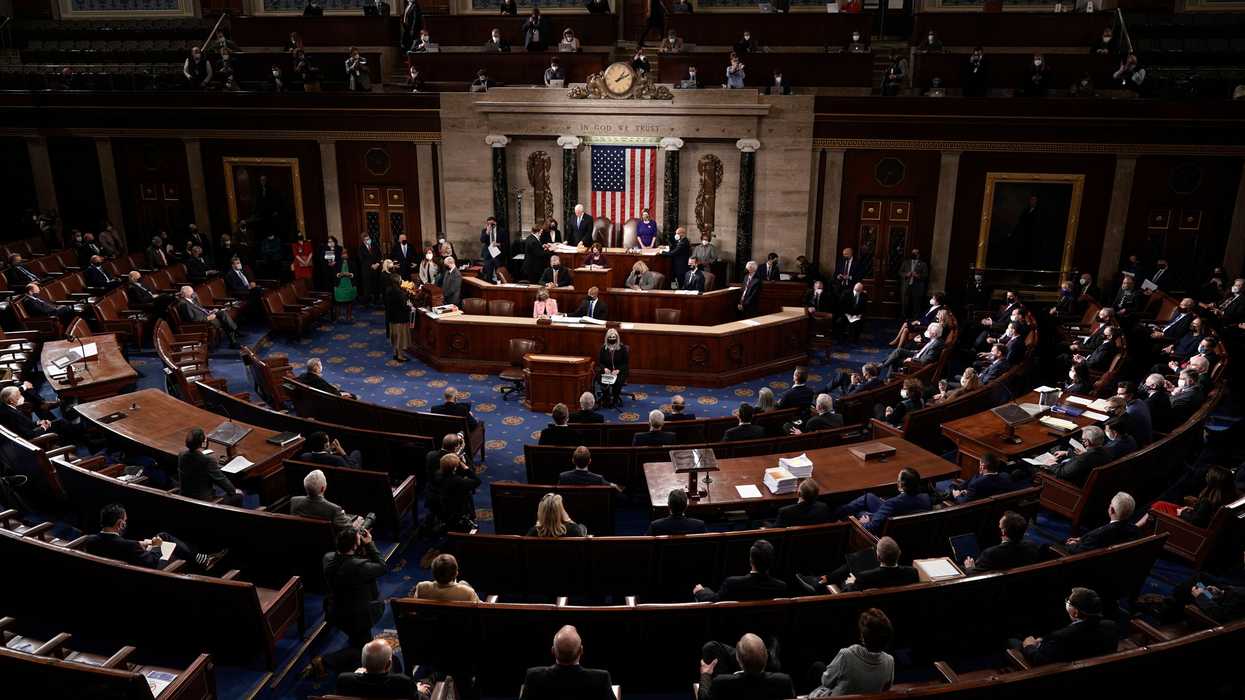Steven Kull is Program Director of the Program for Public Consultation,
Large bipartisan majorities favor proposals that would prohibit the sale of U.S. real estate and oil reserves to entities linked to foreign adversaries, including China and Russia. Three-quarters (73 percent) support a prohibition on the sale of property, including farmland; while 72 percent support a prohibition on selling oil from U.S. oil reserves, according to an in-depth study by the Program for Public Consultation at the University of Maryland’s School of Public Policy.
Concerns among Members of Congress over the economic relations of the U.S. with its adversaries, particularly China, have been on the rise. This has been caused in part by increasing purchases of U.S. agricultural land by Chinese companies; as well as the sale of U.S. oil reserves to Chinese energy companies. Members of Congress and state legislatures have introduced legislation to address this issue. Rep. Gallagher, the Chairman of the House select committee on China, recently put forward a bipartisan bill which would give federal officials greater authority to block companies affiliated with foreign adversaries from acquiring certain U.S. lands, particularly those near sensitive sites (e.g. military bases, telecommunication infrastructure.)
The public consultation survey of 2,625 registered voters ensured that respondents understood the issues by first providing a short briefing on the proposals and having them evaluate arguments for and against. The content was reviewed by expert proponents and opponents of the proposals to ensure that the briefing was accurate and balanced and that the arguments presented were the strongest ones being made.
Currently, the federal government reviews sales of major businesses, technologies and land near military sites to foreign entities, and blocks them if they are deemed a national security risk. One proposal would expand this authority to cover sales of all land and real estate, and require the sale be blocked if the purchaser is determined to be linked to a foreign adversary, whether or not it directly poses a national security risk ( H.R. 212). This is favored by 73 percent (Republicans 84 percent, Democrats 64 percent, independents 69 percent).
The other proposal focused specifically on blocking sales of farmland to foreign entities if the sale is determined to be a national security risk ( S. 138). Support for this proposal is even higher at 80 percent (Republicans 84 percent, Democrats 78 percent, independents 77 percent).
All of the arguments in favor of these proposals were found convincing by a bipartisan majority, including the arguments that: control of property could give adversaries an inroad to influence our politics (87 percent convincing); this is a smart foreign policy move to give U.S. leverage over China (80 percent); and adversaries’ purchase of farmland is a risk to our food security (88 percent).
The arguments against were found convincing by less than half, including the arguments that this will: lead to discrimination against ordinary Chinese individuals and businesses in the U.S. (41 percent, though 54 percent of Democrats found it convincing); worsen already tense relations with our adversaries (40 percent); and hurt foreign investment in the U.S. (35 percent).
The second part of the survey was on a proposal to prohibit the sale of oil from the U.S.’ Strategic Petroleum Reserve to any company affiliated with a foreign adversary, most of which are owned or controlled by their national government ( H.R.293, H.R. 21, S. 283). A bipartisan majority of nearly three-quarters (72%) were in favor of prohibiting such sales (Republicans 82 percent, Democrats 65 percent, independents 66 percent).
“Historically, Americans tend to support limiting economic relations with adversaries,” commented Steven Kull, director of PPC.
The sample was large enough to enable analysis of attitudes in very Republican and very Democratic districts based on Cook PVI ratings. In all cases, very large majorities favored the ban on land and real estate purchases (very red 79 percent to very blue 62 percent) and the ban on oil reserve purchases (very red 75 percent to very blue 60 percent).
Though there was strong support for limiting economic engagement with China, among other adversaries, only one in three said they saw China as an enemy (34 percent), with large partisan differences (Republicans 53 percent, Democrats 19 percent). Rather, a majority (59 percent) saw China as a competitor, while just seven percent saw it as a partner. These perceptions relate to support for these new restrictions. Nearly nine-in-ten of those who view China as an enemy favored the property and oil reserve restrictions (89 percent and 88 percent, respectively), with support dropping to around two-thirds among those who said competitor (68 percent and 65 percent), and below half among those who said partner (43 percent and 47 percent).
The survey was fielded online May 19-30, 2023 with a probability-based national sample of 2,625 registered voters provided by Nielsen Scarborough from its larger sample, which is recruited by telephone and mail from a random sample of households. There is a margin of error of +/- 1.9 percent.
Questionnaire with Frequencies
Slides with Findings
Try the Policymaking Simulation





















